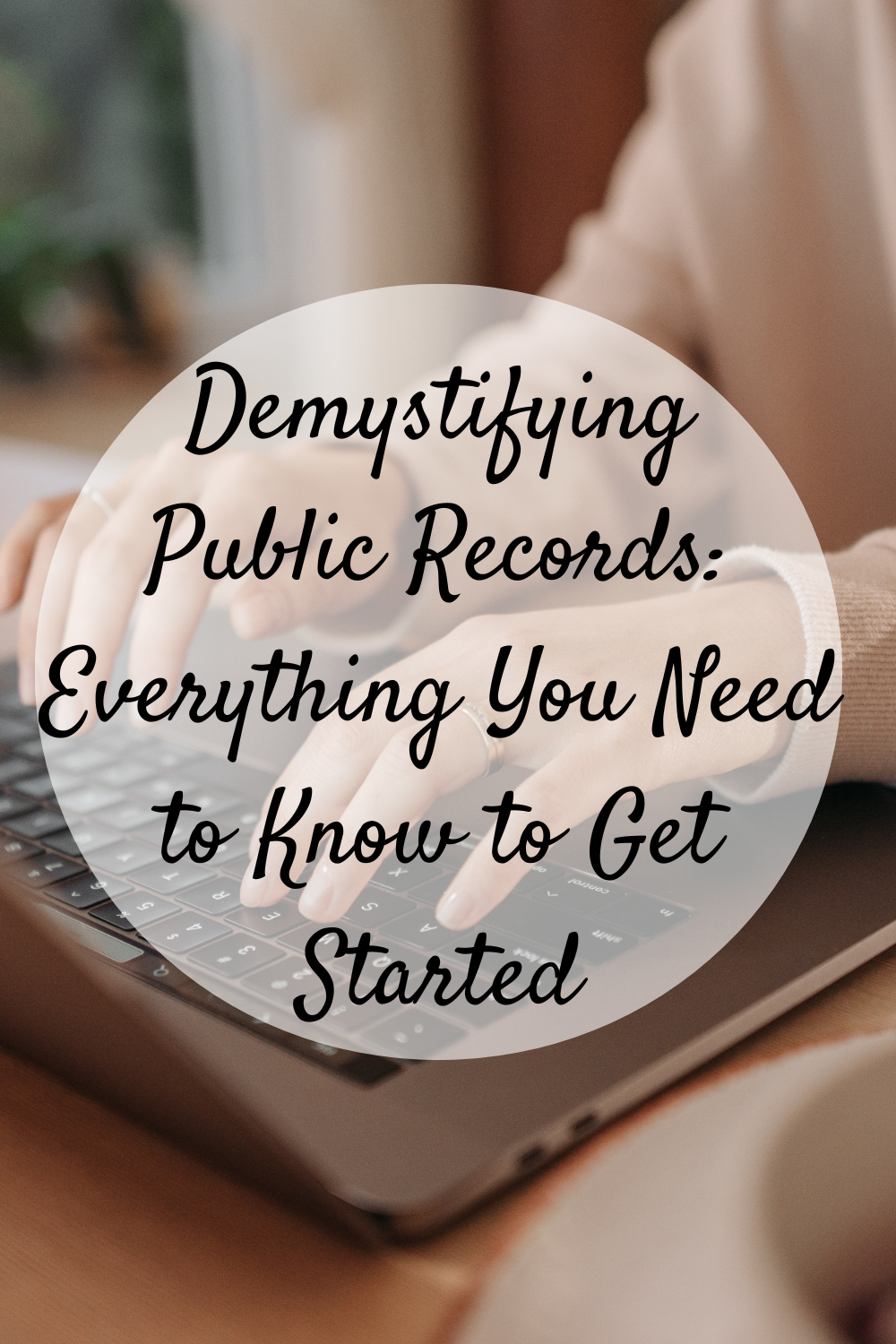
Are you curious about public records but feeling a bit overwhelmed by all the information out there? Look no further – in this comprehensive guide, we’ll demystify the world of public records and provide you with everything you need to get started.
Public records are valuable sources of information that can provide insights into various aspects of individuals, businesses, and government activities.
Whether you’re an investigator, a journalist, or simply interested in learning more about this vast knowledge repository, this article will be your go-to resource.
We’ll cover everything from understanding what public records are and how they are created to navigating the different types of records available. We’ll also provide tips on accessing public records, ensuring you have the tools to find exactly what you’re looking for. So, if you’re ready to dive into the world of public records and unlock a wealth of information, keep reading. Let’s demystify public records together and empower you with the knowledge to make informed decisions.
What are Public Records, and Why Are They Important?
Public records are official documents or information created and maintained by government agencies.
These records are available to the public and can provide valuable insights into various topics, including criminal records, court cases, property ownership, business registrations, and government spending. Public records play a crucial role in promoting transparency and accountability, as well as ensuring access to information for citizens.
Understanding the types of public records available is essential to knowing where to seek specific information. Let’s explore some of the most common types of public records you may encounter:
Types of Public Records
- Criminal Records: Criminal records contain information about an individual’s criminal history, including arrests, convictions, and any associated court documents. These records are important for conducting background checks and ensuring public safety.
- Court Records: Court records document legal proceedings, including civil and criminal cases. They include information such as case filings, judgments, and court orders. Access to court records is crucial for understanding legal research, investigative journalism, and the judicial system.
- Property Records: Property records provide information about real estate ownership, including property deeds, mortgages, and tax assessments. These records are vital for conducting property research, verifying ownership, and assessing property values.
Now that we understand the various types of public records, the next step is to know how to access them. If you want to get the work done quickly, you can also come over here to learn more about the best services to try.
How to Access Public Records
Accessing public records may seem daunting at first, but it can be a relatively straightforward process with the right approach. Here are some steps to help you access public records effectively:
- Identify the Relevant Government Agency: Start by determining which government agency is responsible for maintaining the specific type of record you’re looking for. For example, if you’re searching for property records, you’ll likely need to contact the local county clerk’s or assessor’s office.
- Understand the Access Requirements: Government agencies may have varying rules and procedures for accessing public records. Some records may be available online for free, while others may require a formal request or a small fee. Familiarize yourself with the specific requirements to ensure a smooth search process.
- Utilize Online Resources: Many government agencies now provide online portals or databases where you can search and access public records. These resources often allow you to narrow your search using filters such as name, location, or date. Take advantage of these tools to streamline your search.
Once you’ve accessed the public records, it’s important to understand their limitations and how to interpret the information they contain.
Understanding the Limitations of Public Records
While public records can be an invaluable source of information, it’s essential to recognize their limitations. Here are a few key points to keep in mind:
- Incomplete Information: Public records may not always provide a comprehensive picture of a person, business, or event. They often focus on specific legal or administrative details and may not capture the full context or background.
- Data Accuracy: Although government agencies strive for accuracy, errors and omissions can occur in public records. It’s important to cross-reference information whenever possible and be aware that records may not always be up-to-date or accurate.
- Privacy Considerations: While public records are, by definition, accessible to the public, certain personal information may be redacted or restricted to protect privacy. This can vary depending on the jurisdiction and the type of record.
By understanding these limitations, you can approach public records with a critical eye and make informed decisions based on the available information.
Common Myths About Public Records
Misconceptions about public records can lead to confusion and misunderstanding. Let’s debunk some common myths:
- Myth 1: Public Records are Only for Professionals: Public records are available to everyone, not just professionals. Whether you’re a journalist, a business owner, or an individual searching for information, you can access these records.
- Myth 2: Public Records Are Always Free: While some public records are freely accessible online, others may require a fee to cover administrative costs. The fees are usually reasonable and vary depending on the type of record and the government agency involved.
- Myth 3: Public Records are Difficult to Understand: Public records may contain legal or technical language, but with a little research and effort, anyone can learn to interpret them. Various resources, including online guides and legal professionals, can help you navigate the complexities.
By dispelling these myths, we can encourage more people to leverage the power of public records for their benefit.





Leave a Reply